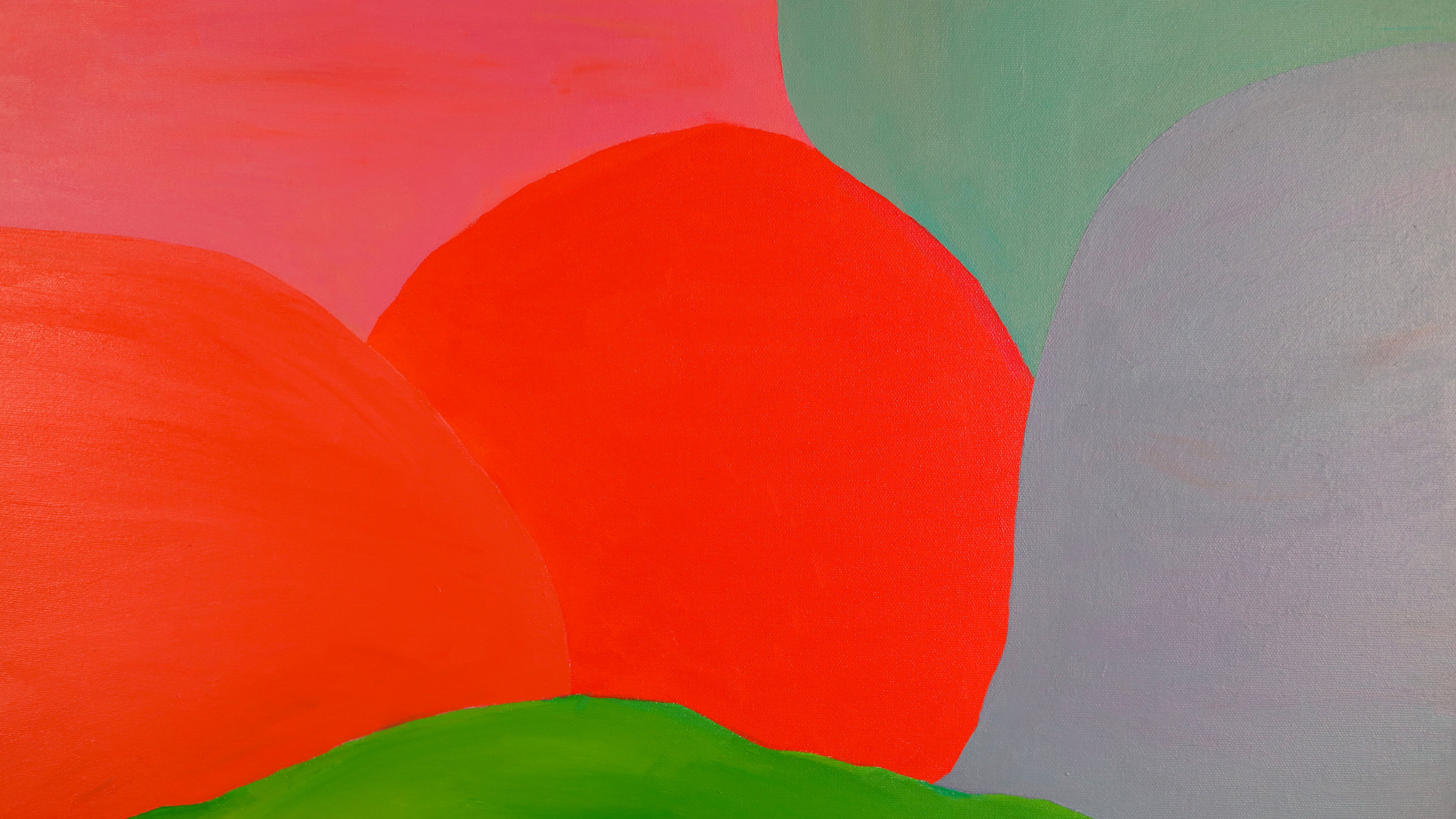“Don’t give up, just know that you are worth it” are some of the first words heard upon entering Zoë Gamell Brown’s art exhibition wiri wiri bird’s eye at Orí Gallery, on view through Jan. 31. A video projected on a wall continues with the voice of a warm maternal figure.
“Going up the hill—and there’s many hills in Portland—is not easy, but when you get up there you’ll say, ‘Isn’t it beautiful?’”
It’s almost as if the maternal figure, revealed to be the artist’s mother on a phone call, invites patrons home as they walk through the North Mississippi Avenue gallery. A sense of pride in her voice, of knowledge carried on from culture and tradition, speaks to Brown’s multimedia work. In this collection, ceramic sculptures incorporate many natural elements, such as eucalyptus and lavender. The show is bookended by photography that mirrors this ecological throughline.
In what Brown describes as “experimental video and photopoetry projections,” scenes of a woman walking along the beach and into the ocean are cast on the wall of the gallery, while close-up imagery of ocean waves layered onto her body as she moves with the water is one part of the experimental cinema experience in wiri wiri bird’s eye. Another is the feature in the center of the room: a wicker chair with a pillow and a mesh canopy inviting the viewer to sit and watch the video from the artist’s perspective, one reminiscent of a dream narrated by matriarchal wisdom.
The artist dreams in technicolor. Oranges, reds, greens and blues pop in many of the acrylic paintings, including Sisters, Not Twins (2022), or the more muted yet impactful Abundance (2023), painted with acrylic on birch wood. Both paintings show silhouettes of feminine faces in bright color, with components of the faces conveyed as disjointed layers. The vibrant show is carefully balanced with ceramics and photography that incorporate a soft and warm color palette of browns and greens to render a headspace like a garden, where the soil is just as important as the flower. The ceramics are mostly vessels to hold dried flowers, a few of them with the features of a face as if to show us that the natural environment is growing within us as well as around us. Mabaruma (2022) stands out as a photographed piece that brings that balance in one single image, a bright orange house set in the tropical rainforest of Guyana. Other photographed pieces bring out the rich color and texture of plant life, such as lush green fern fronds.
Brown’s ecologically inspired and incorporated artwork can be found in many of her projects outside of this installation as well. A doctoral candidate in the University of Oregon’s inaugural Indigenous, Race, and Ethnic Studies cohort, Brown is also the founder and co-steward of Fernland Studios, an experimental arts studio prioritizing rest, rejuvenation and reciprocity. According to Fernland’s website, its mission is to “offer Black, Indigenous and all people of color opportunities to sustain their relationship with the land through art, education and spiritual wellness.” Brown’s cinematic work screened in 2023 at Seattle’s South Sound Experimental Film Fest. She’s also shown art in galleries throughout Eugene.
“Change the environment of your thoughts,” Brown’s mother says in the video, reflecting how the artist creates. The collection’s message speaks to Indigeneity, change and adaptation without losing one’s voice, knowledge and vision. Brown’s scholastic research concerns emotional and ecological elasticity. Guests exiting Orí are invited to put together a dried flower arrangement as something tangible to remember the ecological emphasis in the collection, like a free ephemeral gift shop.
“Look in the mirror and say, ‘I’m a bad bitch,’” the matriarch says near the end of the phone call. Based on the collection presented, Brown seems to live that mantra.
SEE IT: wiri wiri bird’s eye at Orí Gallery, 4038 N Mississippi Ave., oriartgallery.org. 1–5 pm Thursday–Saturday.

